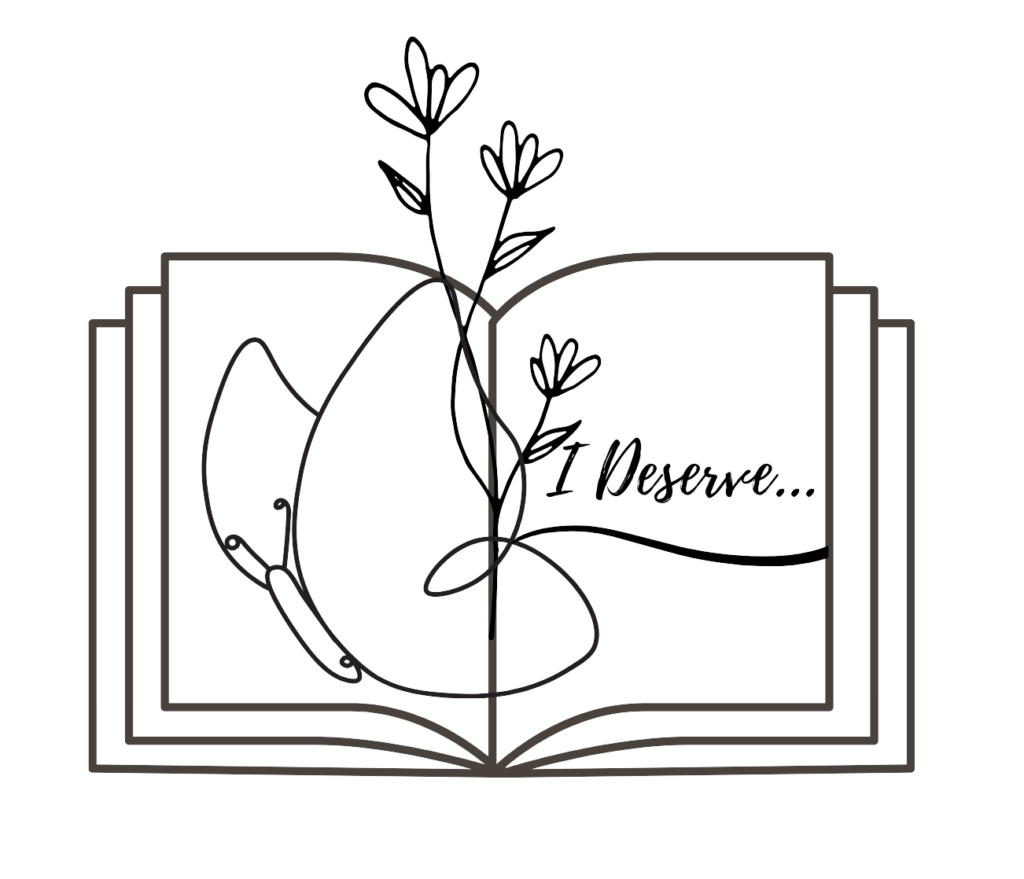At the end of last year, I started writing down a few simple statements — I deserve to heal. I deserve to be healthy. I deserve a chance at happiness. These words felt empty. I didn’t believe them, but that’s the point. It was my attempt to shift the narrative in my mind — the thoughts1 that tell me I don’t truly deserve anything good.
For as long as I can remember, and still now, my inner critic distorts2 my self-perception and dictates my actions. Acceptance of myself is conditional, tied to arbitrary metrics. Whether it’s the number on a scale, the calories I consume and burn, or how perfectly I perform in every area of my life, I’m constantly trying to “earn” my worth or my place in the world.
When I don’t meet these standards, I think, on a subconscious level, I feel I deserve to be punished. I fall into a self-destructive cycle: restricting, obsessing over “clean” eating, or binging, overexercising, and pushing my mind and body to their limits. These behaviors give me a false sense of control, as I grasp onto anything to fill the void within. It’s like I’m digging myself deeper and deeper into a pit, hoping that somehow, if I go far enough, I’ll find something solid to stand on. But instead, I just keep drifting further away from the peace I seek and the person I want to be.
Continuing down this path only leads me further into the darkness, and I fear the abyss will consume me entirely. These words I write — I deserve — don’t feel like my own because they contradict the voices that have shattered my identity. But, perhaps, in this act of defiance, I can slowly start to piece myself back together. And maybe one day, I’ll know what it’s like to feel whole.
I Deserve to Heal
“I deserve to heal.” For me, this means healing my relationship with food, exercise, my body, and ultimately, myself. I’ve spent my entire life fighting with myself — weighing every piece of food that goes into my mouth, compulsively exercising, and never letting myself rest. I’ve become so disconnected from myself that I no longer recognize my hunger and fullness cues. Without proper nourishment and recovery, my body is stuck in survival mode, relying on cortisol to keep me going.
I don’t know what a “normal” portion size is, nor can I fathom how “normal” people eat. If I can’t stick to my food and exercise routine, I get extremely anxious. I don’t like to eat out at restaurants because I can’t control the number of calories I’m consuming. Even the idea of connection feels like a threat to these disordered habits.
Repairing this relationship would mean allowing myself to eat without micromanaging everything, letting go of my intense fear of weight gain, and moving because I want to, not because “I have to.” It’s about creating a sense of safety and rebuilding trust with myself. I want to nourish and care for myself with compassion, instead of judging and shaming myself for every choice I make.
Healing requires me to challenge the very beliefs3 that have held me captive. I need to reject the notion that body and weight changes are a sign of failure and begin to realize that they are not only okay but inevitable. If I keep aiming for an ever-moving target, I’ll never find peace within myself.
I Deserve to be Healthy
“I deserve to be healthy.” When I say “healthy,” I don’t mean the unrealistic standards set by diet culture and the fitness industry. I mean true health, encompassing mental, emotional, and physical health. That means meeting all my needs, many that I’ve neglected for so long. I’ve spent so much of my life focusing solely on controlling my food intake and exercise that I’ve isolated myself from everyone and everything. I’ve lost touch with things that used to bring me joy and who I really am.
Everything I do is based on meeting some numerical value or chasing perfection. Do more. Achieve more. Eat less. Go, go, go. I’m like a robot, just going through the motions, powering down, and rebooting to do it over again. Health goes so much deeper than the surface; it’s about rediscovering my sense of self and actually living, not merely existing and surviving.
I Deserve a Chance at Happiness
“I deserve a chance at happiness.” For so long, I’ve believed that to be happy, I had to look a certain way, meet specific standards, or fit into a box that wasn’t made for me. I’ve always felt like an outcast in every area of my life, like no one could ever understand me. But the truth is, I’ve never quite understood myself. And that’s a harsh reality I need to face.
To have any chance at happiness, I must stop running from myself. Instead of trying to “fix” the messy, imperfect parts of me, I need to create space for curiosity and understanding. I’ve spent so much time trying to mend the brokenness, constantly asking myself, “What’s wrong with me?”
Maybe it’s time to look inward and to listen to that much subtler voice — the one that’s that’s been drowned out by self-criticism. If I quiet the chaos, I might just hear it, whispering words of kindness, not condemnation. In her calming presence, I might finally see that I’m allowed to just simply be, and I am more than the broken parts of me.
Repeating “I Deserve” Until I Believe It
Every time I repeat “I deserve,” I’m confronting the internal narrative that tells me I’m not enough. It doesn’t say it outright, but it manifests in the way I diminish, abandon, and silence myself. I want to rewrite the stories I’ve internalized, ones that have made me feel invisible and insignificant.
The more I affirm these words, the more I make space for the possibility that, one day, I might actually believe them. That I might finally see my worth — not as a mantra on a sheet of paper, but as an unshakeable, irrefutable, and unconditional truth.
What Do You Deserve?
If you resonate with this post, take a moment and ask yourself:
- What is something you struggle to believe you deserve?
- What is a message you need to hear, even if it doesn’t feel true yet?
Put pen to paper. Say it out loud. Start with “I deserve…” and fill in what speaks to you. Maybe it’s rest, love, peace, freedom, or simply the right to exist as you are. Whatever it is, give yourself permission to claim it.
And if you feel comfortable, share your “I deserve” statement in the comments — I’d love to read yours.
At first, these words may feel unnatural, like seeds planted in unfamiliar soil. But the more we nurture them, the more we give me them light, the more they begin to take hold inside our minds. Just as a plant anchors itself to the earth through its own roots, we too can ground4 ourself in self-belief and self-acceptance, creating a sense of stability within. And maybe, in time, we can emerge from the shadows of obscurity and bloom into our most authentic, vibrant selves.
- Cognitive restructuring/thought reframing: A cognitive behavioral therapy (CBT) technique that focuses on replacing maladaptive thoughts with healthier ones ↩︎
- Cognitive distortions: Mental patterns that alter how we see ourselves and the world around us, often leading to self-destructive actions ↩︎
- “Core Beliefs Model of Disordered Eating” (NIH): Negative core beliefs –> preoccupation with food, weight, and shape –> disordered behaviors ↩︎
- Grounding techniques: Mantras, deep breathing, or other practices that anchor you to the present and help you calm your mind ↩︎


